BAGHDAD, 23 Nov 2006 (IRIN) - Youssef Jabry, 32, is a singer who loves western music. He sings for a living in parties, weddings and all sorts of gatherings. But what was once a dream job has become a nightmare with the rise of Islamic extremists who say western music is unreligious and must be prohibited.
Six months ago, Jabry´s brother, Muhammad, who was also a singer, was killed by such extremists.
“They broke into our house shouting his name loudly. They carried him off and a week later we found his decapitated body with a note saying that this was the destiny of those who sing American words,’ Jabry said.
“He was 20 and had many dreams. He was a happy boy whose life was ended by those who twist Islamic law according to their own ideology and change it according to what suits them,’ he added.
Jabry, who is a well-known singer in Iraq, has fond memories of his brother and weeps whenever he mentions him. But now, Jabry is the sole breadwinner in the family. His father is too old to work, his mother is a housewife and he supports his two younger brothers through university.
“I cannot leave Iraq because my parents are sick and I cannot leave them alone. There is no future in Iraq for a singer unless he starts to sing religious songs,’ he said.
“But I will try to make some extra money and take my family to Jordan or Syria. There at least I can sing without fear and be near my family. I know I need much more time to save this money, but I know I can do it - even if I have to sing western songs secretly in small parties,’ he added.
Jabry has been warned directly of the consequences of singing the wrong songs.
“They [the extremists] came to me in a marriage party while I was singing and told me that I cannot sing the music of the devil and if I continued I was going to be killed. Since then, I only sing Arabic songs. People still insist that I sing western songs but I cannot put my life at risk,’ Jabry said, adding that he has to be very careful about which Arabic songs he sings too, as some are deemed by the extremists to be too western.
Jabry said that he has lost hundreds of dollars in the 10 months since he was threatened. “I need to sing because it is my job and the only thing I know how to do exceptionally. But with such restrictions on what can be sung, plus the security problems, people are not having many parties any more and the ones I´m lucky enough to sing at are paying very badly,’ Jabry said.
Jabry fondly remembers the “good days’ during former president Saddam Hussein´s time when his voice was heard in many parties. “Once I sang to Saddam at his birthday party and got good money for it because he liked my voice. Today, the only thing I get for singing in English is a threat or a bullet as payment,’ he said.
Like Jabry, dozens of other singers in Iraq are suffering at the hands of extremists and are struggling to make a living with the general decrease in demand for singers.
The Iraqi Artist´s Association (IAA) said that nearly 80 percent of the singers during Saddam´s era have fled the country and that at least 75 singers had been killed since the US-led invasion of Iraq in 2003.
Jabry said the way things are going in Iraq, he would not be surprised if he were to become another statistic to add to the IAA´s tally. “Maybe I am going to be near him [his brother] very soon and the only thing I´m sorry about is leaving my family without support,’ Jabry said.
But he also holds onto dreams of a better day. “I dream of the day that I will take a microphone and sing again with my heart and not with my mind. I dream of the day that I will look in people´s eyes while I sing and they will be happy and satisfied - and not scared that at any point an extremist could break into the party and shoot everyone dead because they are hearing the ‘devil´s song´,’ he said.
as/ar/sz/ed
[ENDS]

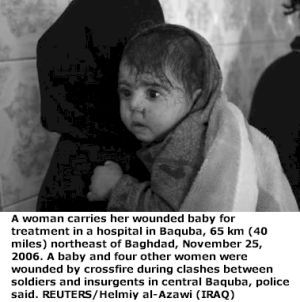
 I'll deal with the early morning slaughter by American troops of day labourers in Sadr city first. They shot and killed 4 they wounded eight. That was in al-Fallah street. As usual the Americans aren't saying anything except that the minibus should have stopped. As usual they're covering up the fact that they opened fire on unarmed civilians. My colleague Ali's posting immediately below covers this incident.
I'll deal with the early morning slaughter by American troops of day labourers in Sadr city first. They shot and killed 4 they wounded eight. That was in al-Fallah street. As usual the Americans aren't saying anything except that the minibus should have stopped. As usual they're covering up the fact that they opened fire on unarmed civilians. My colleague Ali's posting immediately below covers this incident.
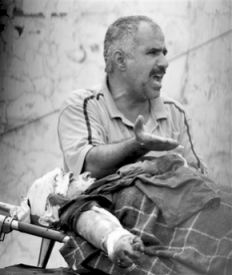 According to the UN at least 3,709 Iraqi civilians were killed in October. They died because of the corrupt, illegal, and racist occupation of Iraq by America and her allies.
According to the UN at least 3,709 Iraqi civilians were killed in October. They died because of the corrupt, illegal, and racist occupation of Iraq by America and her allies.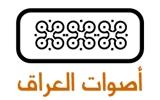 Aswataliraq (Voices of Iraq) is two years old today. It's the first place we check for news of Iraq. It's independent, thoroughly professional, and does it's best to be impartial. They cover not only security and political events but such vital matters as the cost of fool and of fuel.
Aswataliraq (Voices of Iraq) is two years old today. It's the first place we check for news of Iraq. It's independent, thoroughly professional, and does it's best to be impartial. They cover not only security and political events but such vital matters as the cost of fool and of fuel.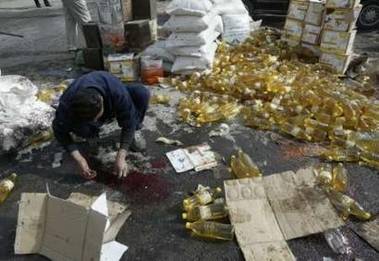

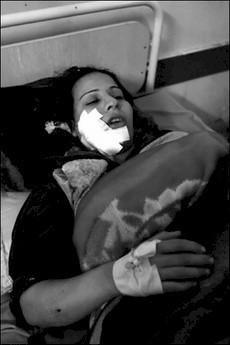 Gunmen burst into her home in Baghdad today. They shot her husband and her six months old child in front of her. Then they shot her.
Gunmen burst into her home in Baghdad today. They shot her husband and her six months old child in front of her. Then they shot her.